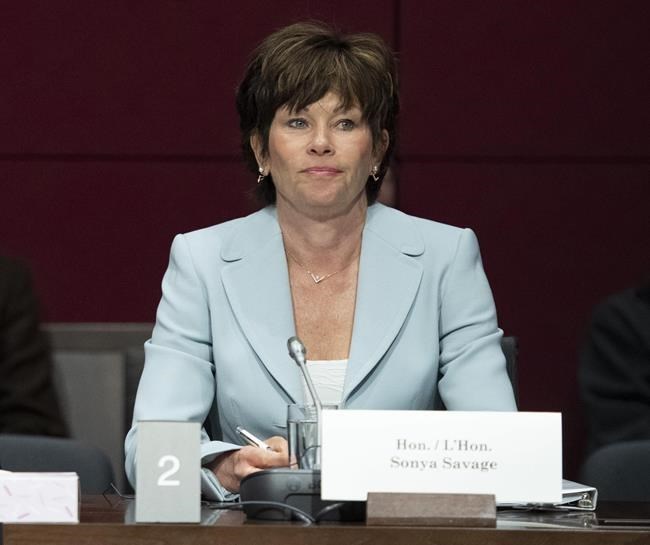Alberta didn't live up to the terms of a deal it has with the Northwest Territories to inform it about threats to its shared watershed after two major oilsands tailings spills, the territory's environment minister said Friday.
Shane Thompson said the lack of communication isn't encouraging as Alberta and the federal government work out the terms under which tailings will be treated and released into the Athabasca River.
"The bilateral agreement says Alberta is supposed to advise us with any ecological changes that happen and they didn't do that," he said.
"This event underlines our position. The government of the N.W.T. will not support the release of tailings unless rigorous science shows how to do it. We also need to see the science."
Employees at Imperial Oil's Kearl first reported seepage from a tailings pond last May to the Alberta Energy Regulator. A second release of at least 5.3 million litres of water was reported in early February from a storage pond.
The wastewater exceeds federal and provincial guidelines for iron, arsenic, sulphates and hydrocarbons that could include kerosene, creosote and diesel. The seepage, the amount of which hasn't been estimated, continues.
Thompson said his government was never officially notified about the spill, despite the 2015 legally binding Mackenzie Basin Bilateral Water Management agreement with Alberta. That agreement emphasizes several times the importance of mutual and prompt notification of changes on the watershed, including during an emergency.
"The protocols will ensure that the party within whose jurisdiction the emergency originates will, without delay, notify the other partner," it says.
Thompson said he met several times with his Alberta counterpart Sonya Savage after the leak was first reported and before Feb. 6, when the Alberta Energy Regulator issued an environmental protection order.
"At no point in time did that conversation come up," he said.
Alberta Environment and Protected Areas did not respond to a question about when it first learned of the leak, neither did Environment and Climate Change Canada or the Department of Fisheries and Oceans, both of which have responsibilities for such spills.
An Alberta environment spokesman said the ministry couldn't comment on the investigation being conducted by the provincial regulator.
"It would not be appropriate for the Alberta government to interfere with the compliance and enforcement actions of an arm's-length regulatory body," John Muir said in a statement.
Thompson said co-ordination is now good between the two jurisdictions and the province has agreed to share information about the releases.
However, it's not the first time the N.W.T. has expressed frustration with its upstream neighbour. In August 2020, the territory was unhappy about not being told Alberta had suspended environmental monitoring on the Athabasca due to COVID-19 concerns.
Now, Thompson said the territory isn't playing a big enough role in developing regulations for the eventual release of treated oilsands tailings water into the river.
"We need the science that they're supposed to share with us," he said. "It has to be transparent.
"We've started the conversation, (but) we want it to be more on a regular basis."
Meanwhile, a second First Nation has complained about being poorly informed about the spills on lands they harvest from.
On Thursday, Chief Allan Adam of the Athabasca Chipewyan First Nation said he only learned of the extent of the spill after the Alberta Energy Regulator issued the environmental protection order and accused Imperial of trying to cover it up.
Friday, the Mikisew Cree First Nation said it had been treated the same way.
Chief Billy-Joe Tuccaro said the failure to keep his band posted is a failure by the Alberta Energy Regulator. Scientists warned of the likelihood of seepage from the ground under the tailings pond when the project was first approved, he said.
"The AER and Canada approved Imperial’s project knowing the risk of seepage for this tailing pond. There needs to be an independent review of the approval of this tailings pond and the AER’s management of this mess," he said.
This report by The 91原创 Press was first published March 3, 2023.
Bob Weber, The 91原创 Press



